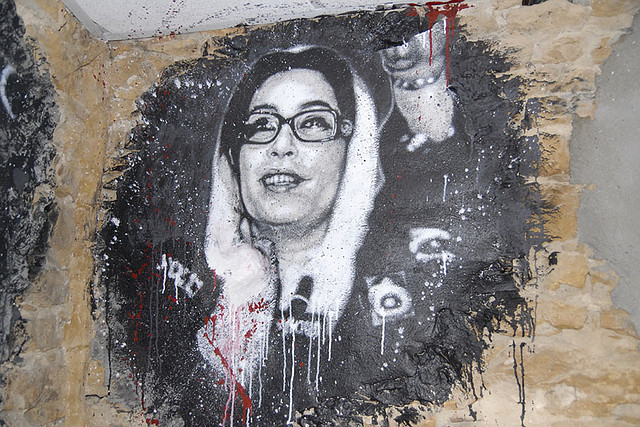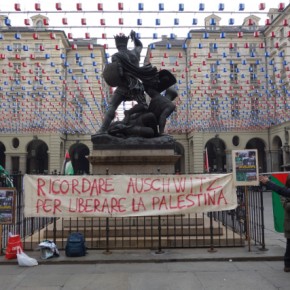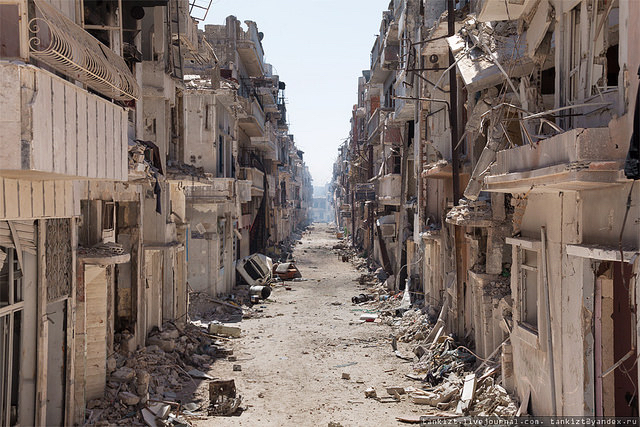Death is in vogue. Since the Taliban-led insurgency against NATO‘s occupation of Afghanistan began, Pakistan has fallen victim to a desperate security situation. Over the last decade, 15, 503 civilians have been killed in terrorist violence in addition to 4, 884 security personnel and 25, 347 insurgent fighters. Much of the violence has been localized to the country’s minority-dominated provinces, particularly in districts such as Swat, which straddle the disputed Pakistani-Afghan border.
Urban centers such as Faisalabad have also become the site of huge upsurges in violent crime. This owes to a variety of factors: Pakistan’s role in the Afghan opium trade, the skills offered to criminal groups by Afghan war veterans, and the severe economic crisis, including routine petrol and electricity shortages, to name a few. Within minority-dominated cities such as Karachi and Quetta, attacks also reflect ongoing sectarian strife, especially within the country’s Shia population. Peshawar particularly finds itself in the midst of military conflict between Pakistan’s Punjab power base, and the minority-dominated provinces it has difficulty controlling.
Discussion of these issues, and the statistics associated with them can certainly help illustrate the patterns by which these trends continue to evolve. However, they fall short in explaining the historic attitudes that inform terrorist violence in Pakistan. Such questions must be answered through an exploration of what Achile Mbembe calls ‘Necropolitics’, the subjugation of living societies to the forces of death. There are deeply psychological factors that inspire and are produced by Islamic militarism in Pakistan, all of which are tied to death and its role in Pakistani political movements.
Pakistan has always been a uniquely necropolitical country, owing primarily to its permanent state of war with India. Pakistan’s numerous conflicts with India affects a constant anxiety of a final confrontation between the two states, which has become a crucial part of the country’s social consciousness. This anxiety also underwrites a culture of state violence, led by Pakistan’s powerful military and intelligence apparatuses. These attitudes have contributed to the sectarian bloodshed common to the country’s minority-dominated outlying provinces, as well as former East Pakistan.
Modern Islamic militarism takes root in the 1990s, as discussed by Arjun Appadurai in his work Fear of Small Numbers. One of Appadurai’s main theories is of social uncertainty, which is a force of general unease regarding a given national ethno (ethnic group,) and its place in the modern nation-state. The main pressure on Pakistan during the 1990s was globalization, which undermined national sovereignty through a twisted internationalism, highlighting issues of national identity in an energized and more desperate lens. Pakistani communities found these questions that emerged from this difficult to contend with, as they added to an already militarized atmosphere, due to the then-escalating prospect of nuclear conflict with India.
The conclusions Pakistanis came to were articulated quite differently by the country’s two principal classes, crudely labeled as the winners and losers of globalization. These categories are, of course, not mutually exclusive. They are meant to reflect the immense emotional split in Pakistan regarding the influence of internationally-driven capitalist modernization.
Pakistan’s winners predominantly hail from its urban, secular elite. Wealthy Pakistanis of higher class backgrounds are most likely to favor a mix of liberalism with secular European (and increasingly American) cultural prejudices, such as anti-Islamic opinions. New standards of sexual and religious morality hold strong appeal within its ranks, particularly among the youth. Wealth is used to finance increasingly lavish projects that have the side-effect of warehousing poverty and the lower classes of Pakistani society. Living largely in private communities, Pakistan’s privileged enjoy the rare advantage of being able to shut out the failed state that they live in.
As one would expect, Pakistan’s losers tend to turn to religion, in response. Perhaps the most common manifestation of this is a desire for a purification of the country, which is partially a result of General Zia ul-Haq’s aggressive program of Islamization in the 1980s. During his years in power, ul-Haq promoted an intolerant form of Sunni nationalism, which combined elements of the Deobandi Movement, with Wahhabi schools backed by Saudi oil money. This version of Islam emphasizes rigidity and an adherence to ritual that has had the effect of divorcing the religion from it’s historical ethical frameworks. As a consequence, Pakistani’s minority communities are increasingly discriminated against, subject as they are to a growing combination of terrorist violence and Sunni intimidation.
It’s important to note how exceptional this situation is. Under more ‘normal’ circumstances, such purification drives would take the firm of increased mosque attendance and an emphasis on observing traditional gender norms. However, in the fringe areas of the Islamic world, such trends tend to mix with ideologies that strengthen Islamic militant movements. Areas that are economically warehoused, such as the slums of Karachi, or have been rendered irrelevant by capitalist modernity, including the tribal areas of Khyber-Pakthunkhwa, are home to a particular fierce brand of losers. Militarism and violence are the only means they have to create an alternative ethical universe.

Additionally, the perceived arrogance of cosmopolitan Pakistani elites is seen as an indicative of the power and influence of the United States This is due to their adoption of Western cultural mores, in addition to America’s undeniable role in furthering capitalist globalization. Islam therefore becomes understood to be a means of resistance against this faceless social enterprise, transforming all of its reminders into potential military targets. It’s a familiar scenario, certainly, andone which grows more volatile by the day.
Take, for example, Western novels and cartoons, which promote the idea of freedom of speech. As inconsequential as they might be to Americans, and as popular as they are amongst Pakistan’s elites, for Sunni nationalists, such pop culture is a recipe for offense, touching, as it does, upon Pakistani anxieties about preserving community identity. Unable to dissociate it from the class conflicts which plague Pakistani society, Islamists find in it inspiration for moral outrage, and intolerance towards minorities.
Despite the specificity of Islamist resentment, such responses to cultural globalization are part and parcel of the confrontation with modernity, typical to this part of the global south. An illustration Martin Heidegger’s The Question Concerning Technology, is of value here. According to the legendary German philosopher, a windmill allows for a more direct relationship with Being than its muddled variant, the hydroelectric power plant. Take Heidegger’s metaphysical-sounding language with a healthy grain of salt, and you can see the relevance of this analogy, for a South Asian context.
Stoning by the Taliban (the windmill) is experienced as a direct link to the state of nature (Being) than mechanized violence(the hydroelectric plant.) Stoning and other forms of extreme violence, such as beheading, partly become methods for the rediscovery of Being, as populations alienated by modern warfare use intimate violence as a means for undoing their alienation. This Being also becomes a method for inviting religious sentiment into social spaces ruled by the irreligious nature of modern warfare, from Soviet tanks and helicopter gunships to American drone strikes. [It is no coincidence that during the Iraqi civil war and currently in Syria, areas of mass bombardment have also become sites for religiously-motivated beheadings.]
It is in this vein that suicide bombings are understandable. For Islamists, their rediscovery of Being is tied very closely to liberal concepts of individualism, as the alienation felt by mechanized warfare is one of alienation. Even with public events such as stoning, the act is less exemplary of group behavior, than a large collection of individual ones. The act of reintroducing the religious and the personal to violence, leads to a fusion of bodies with war-making, something which, though dependent on individuals, seems to have forgotten them, amidst its emphasis on high technology and mechanization.
Within Pakistan, suicide attacks have been a reproach to the military’s technological might. The first attacks began after the Second Intifada, predominantly involve well-educated and ideologically-driven members of society who list their inspiration as violated Muslim bodies in Afghanistan, as well as those in Iraq and Palestine. This pattern has become particularly apparent with the push for drone strikes by the Obama Administration, which has invited a fresh wave of attempts to personalize methods of violence such as recorded executions of alleged American spies which are sold on DVDs in cities such as Peshawar. More widely, it is also one of the main reasons that suicide attacks have recently become much more common in Yemen.
Pakistan’s liberal-minded ‘winners’ have taken the necropolitics of Islamic militants to be an indication of the dangers of allowing the ‘losers’ to fully access democracy. Given them the vote, and they’ll introduce authoritarianism. Their proof: The consequences of the Iranian revolution, and the theocratic state it produced. Reactions against terrorism therefore become a reaction against Pakistani democracy more broadly, which in addition to issues of security, is the major reason that Pakistan’s secular elite is so closely allied with the country’s military establishment.
Pakistanis have become so accustomed to violence that it is now an everyday expectation, which is the true existential disaster of terrorism. By blurring the lines between civilian and military spaces in their society, (which are already subject to flux,) the internal boundaries undergirding the South Asian state are coming unraveled. If there are no longer boundaries between the them, there is no space left for politics. The only thing left, in this scenario, is war.
This, unfortunately, is the Pakistani reality. Unrest, and the prospect of sudden death, has replaced peace, however imperfect, as the new norm. The fact that Pakistani society still manages to function has simply meant an internalization of this violence. Hence the rise, and the necessity of necropolitics, as the new national ethos. In a country without a properly functioning government, it appears to be the only agreed upon organizing principle. In this instance, that principle just happens to be death.
Photos courtesy of Abode of Chaos and m.a.r.c. Published under a Creative Commons license.





